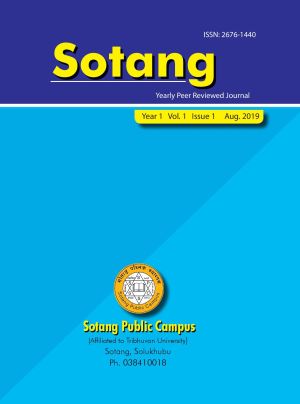Critical Theory and its Educational Implications in Nepal
DOI:
https://doi.org/10.3126/sotang.v1i1.45745Keywords:
Critical Theory, Principal tenets, Philosophical root(s), Research components, Criticism, Educational implication, NepalAbstract
Critical theory is the output of a herd of German social theorists, first associated with the Institute for Social Research begun in Frankfurt Germany in 1923, and who later moved to and were influential in the US. Critical theory incorporates a wide range of approaches all focused on the idea of freeing people from the modern state and economic system – a concept known to critical theorists as emancipation. This paper aims to provide a concise introduction about the critical theory with its principal tenets and critiques along with philosophical root(s) and the research components. It also overviews the overall educational implications of critical theory in contrast to the other sociological theories in the field of educational research. Moreover, the paper provides insights into how researchers contextualize the critical theory in the educational landscape of Nepalese scenario.




